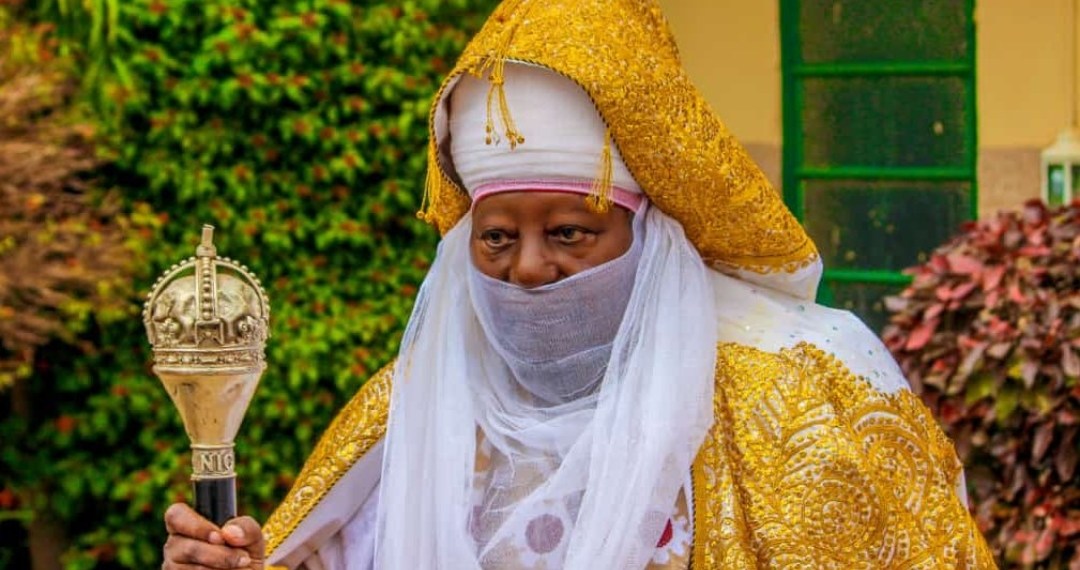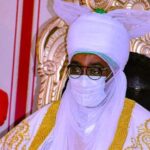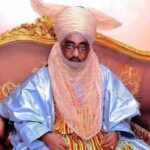Alhaji Shehu Idris, the late Emir of Zazzau, who died on Sunday, September 19, 2020, was many things to many people in his life time.
Apart from being a royalist, he was a teacher, administrator, and a statesman of great repute whose 45 years on the throne witnessed a lot of positive developments in Zazzau Emirate. He was also a positive force not just to Kaduna State but to Nigeria as well.
He was the 18th Emir of Zazzau and the longest-reigning monarch in the history of the illustrious emirate, considered as one of the prominent in northern Nigeria and indeed the country as a whole.
He ascended the throne in 1975 as a dark horse in succession to Alhaji Muhammadu Aminu who he served as private secretary. In the running for the succession to Emir Aminu, the late Shehu Idris was not reckoned with by many due to the fact that his own father had not ruled the Zazzau Emirate. It was his grandfather who ruled as emir.
It was a measure of the sterling qualities of the late Emir Alhaji Shehu Idris that despite this seeming handicap, he was nevertheless chosen to be emir ahead of other princes of the Zazzau ruling house.
The late Emir was known to be a bridge-builder who worked hard to build peaceful co-existence among the inhabitants of Zazzau emirate. As Chairman of the Kaduna State Council of Traditional Rulers he was also supportive and instrumental towards efforts that resulted in the creation and granting of autonomy and recognition to new chiefdoms in Kaduna State.
At the national level, he was always easily among the prominent traditional rulers who are relied upon to support and add their considerable influence towards the resolution of contentious national issues. In this regard, he was always on hand to readily lend his considerable wealth of experience as a royal father and administrator.
During his 45-year reign, late Emir Shehu Idris witnessed momentous developments and changes of government both at the state and national level. He first ascended the throne during a military regime when the present Kaduna and Katsina states were under a single state, the North central state which was later named, Kaduna State. He witnessed the coming of civilian rule and the acrimonious impeachment of Balarabe Musa the civilian governor. And when the civilians were overthrown, he lived through a succession of military governors and the splitting of the old Kaduna state into Kaduna and Katsina states. And with the return of democracy in 1999, his resilience has carried him through all the vicissitudes of government changes and policies.
It is a tribute to his staying power that the late Shehu Idris came through all these without getting involved in any of the inevitable controversies that often swirled around the activities of the various governments that came and went. He singularly and studiously chose to maintain a non-partisan role in matters of governance that were outside his brief, mindful no doubt of the fact that as a revered traditional ruler, that would only result in opprobrium to his status and the important throne he occupies.
For this prudent and nuanced approach to his role and responsibilities, the late Emir Shehu Idris deservedly earned the respect of a wide spectrum of Nigerians; from former presidents to his fellow traditional rulers, government and business leaders, academia, religious leaders of the major faiths and denominations. The avalanche of tributes to him bears testimony to that. And above all the multitudes, comprising the high and mighty that witnessed his burial in Zaria, spoke volumes of his place in the hearts of his subjects, friends and well-wishers of the Zazzau Emirate who will always remember him for his positive contributions to the emirate during his 45-year rule.
May Allah forgive his shortcomings and grant him aljanna firdaus, ameen.

 Join Daily Trust WhatsApp Community For Quick Access To News and Happenings Around You.
Join Daily Trust WhatsApp Community For Quick Access To News and Happenings Around You.


